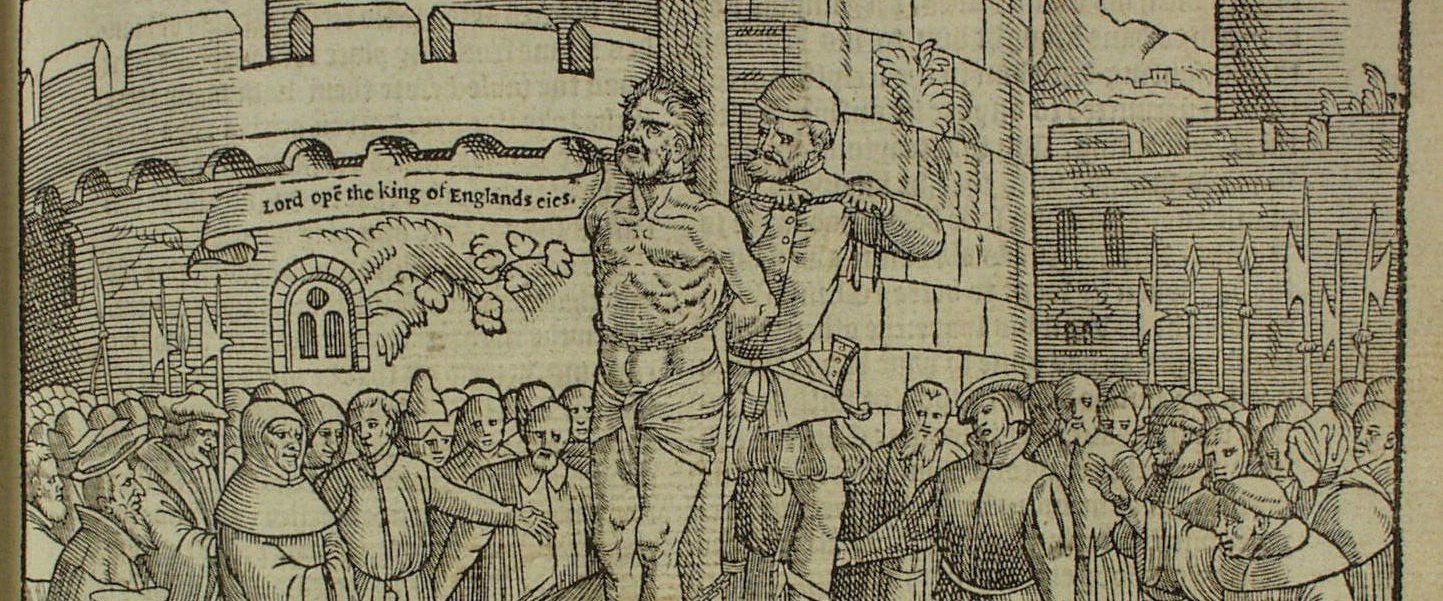Some weeks ago I had entered into a rather challenging conversation with a lady in Denby Dale whilst handing out leaflets inviting people to attend our Church service. The lady was clearly well read and was interested in history and philosophy and I’m afraid my knowledge on such matters does not go to any great depths, as far back as World War I really. Anyway, I made a simple attempt to make known the Gospel of Jesus Christ, but as the conversation ended, her parting comment has reverberated in my mind ever since – “know your historyâ€. It was apparent that my feeble attempt to converse with this particular lady had left her with an awareness of my lack of knowledge.
Some may think this is an issue of pride on my part, not being able to compete on an intellectual level, and they’d be right. But there is an issue here that affects all Christians. Do Christians know about the history of the Church of Jesus Christ? Is Church history taught by elders, read and understood by Christians? Can we encourage each other in our faith by being able to share our knowledge of the commitment and sacrifice which the servants of Christ in centuries past gave to ensure we have many of our freedoms and the understanding of the Word of God we have today? I would suggest that many of us do not know as much as we ought.
The book ‘Sketches from Church History’ by S.M Houghton is an excellent overview of our history. On the back cover it states that ‘ reading of the exploits of those who have gone before us, through times of prosperity and times of persecution, should stimulate, warn and encourage the church in our own age to persevere in the same path, and obtain the same everlasting reward’.
One particular servant of Christ we should not only know about, but also thank our Lord for, is William Tyndale. A BBC 2 documentary entitled ‘The Most Dangerous Man in Tudor England’ (aired on 6 June 2013) provided a useful insight into what drove Tyndale to endure being hunted for his life around Europe in the 16th century just because he wanted to translate the bible into English. It is thanks to Tyndale’s unswerving commitment and courage that the common man, or ‘ploughboy’ of the end of the middle age, could at last understand for himself what the Word of God said and how it would cut straight into their life. Even today, at least 70% of the Bible we have is as a result of Tyndale’s work.
A brilliant scholar, Tyndale was an expert in languages and he knew that many people knew little, if anything, about the Bible and that the nearest anyone came to its teaching was through the Roman Catholic Book of Mass. Tyndale realised that once people could read the Bible in their own language they would see that the Catholic teaching of salvation through confession, penance, purgatory, and the Church being an intermediary to eternal life, were unbiblical and that the Word of God revealed the simple truth of an individual’s justification by faith through the grace of God as the only saving power.
“For we maintain that a man is justified by faith apart from observing the lawâ€
Rom 3:28
“For it is by grace you have been saved, through faith – and this not from yourselves, it is the gift of God – not by works, so that no one can boastâ€
Eph 2:8-9
Church history is awash with people like Tyndale, who we owe a massive debt of gratitude for sacrificing their lives to ensure the truth of the Gospel was, and continues to be, revealed. What encouragement we can draw from learning about these servants of the Lord and how we ourselves can take courage to fulfill the instruction expressed by the Apostle Paul to:
“Preach the word; be prepared in season and out of season; correct, rebuke and encourage – with great patience and careful instruction, For the time will come when people will not put up with sound doctrine. Instead, to suit their own desires, they will gather around them a great number of teachers to say what their itching ears want to hearâ€
2 Tim 4:2-3
You can view the BBC 2 documentary on William Tyndale here
Posted by Duane

